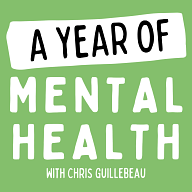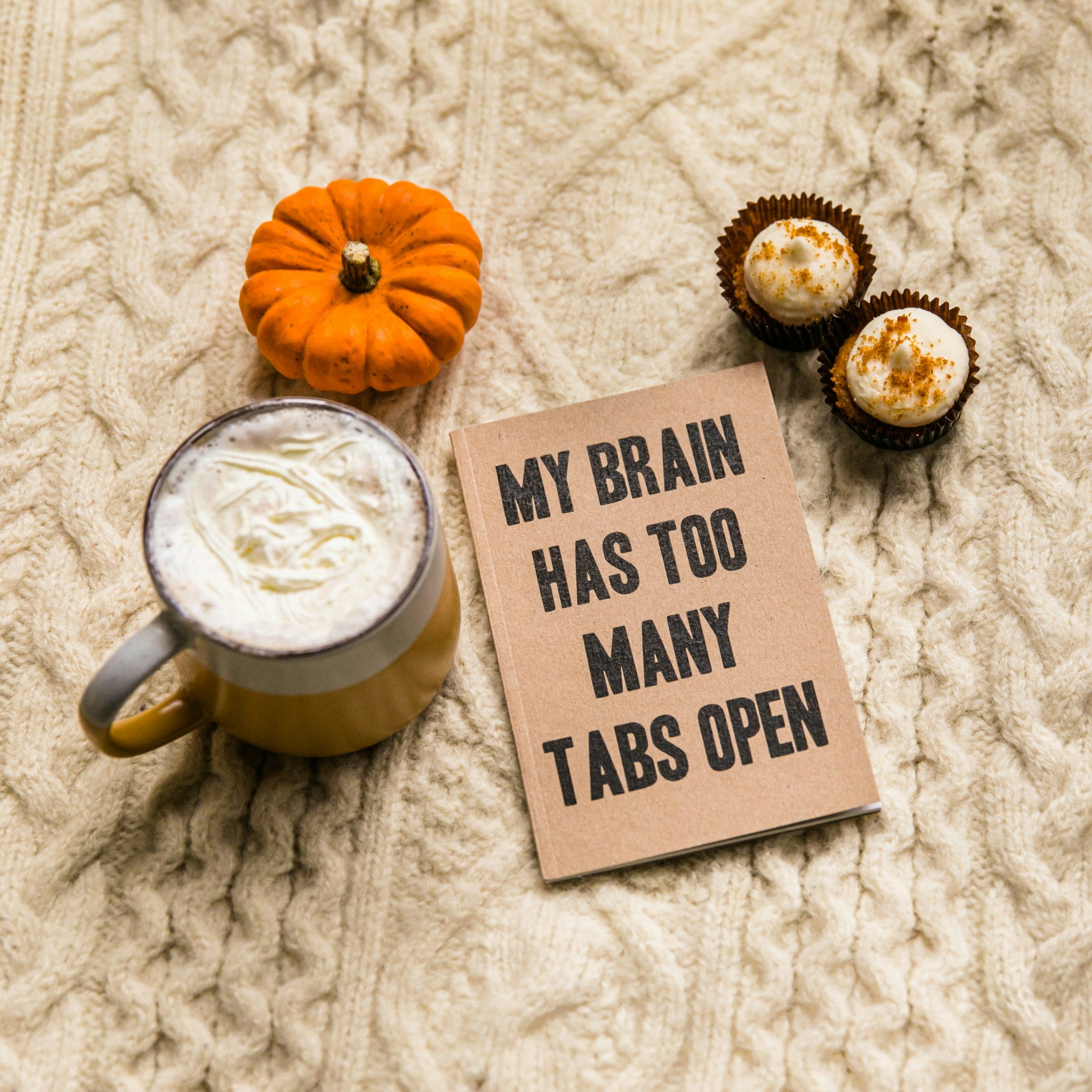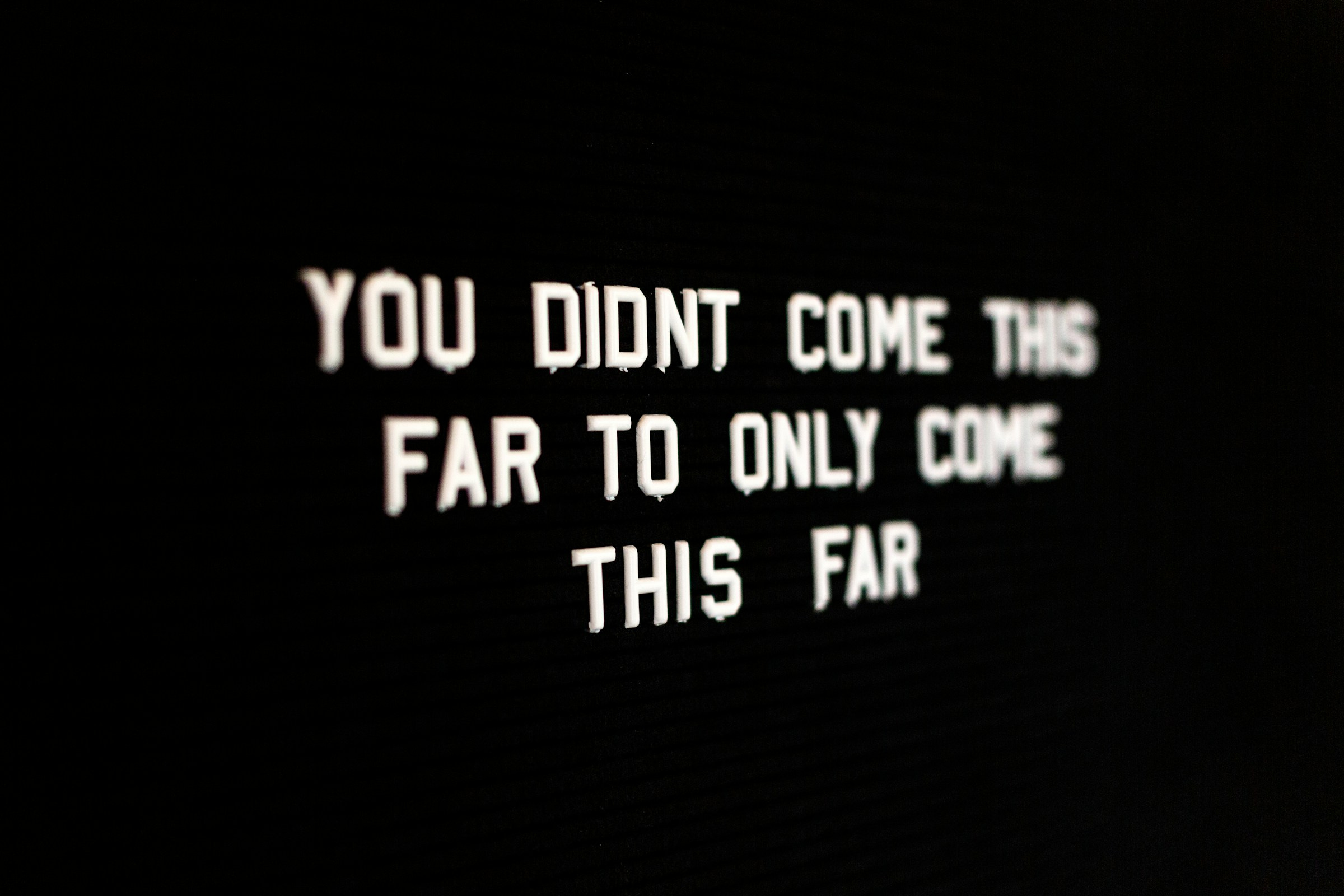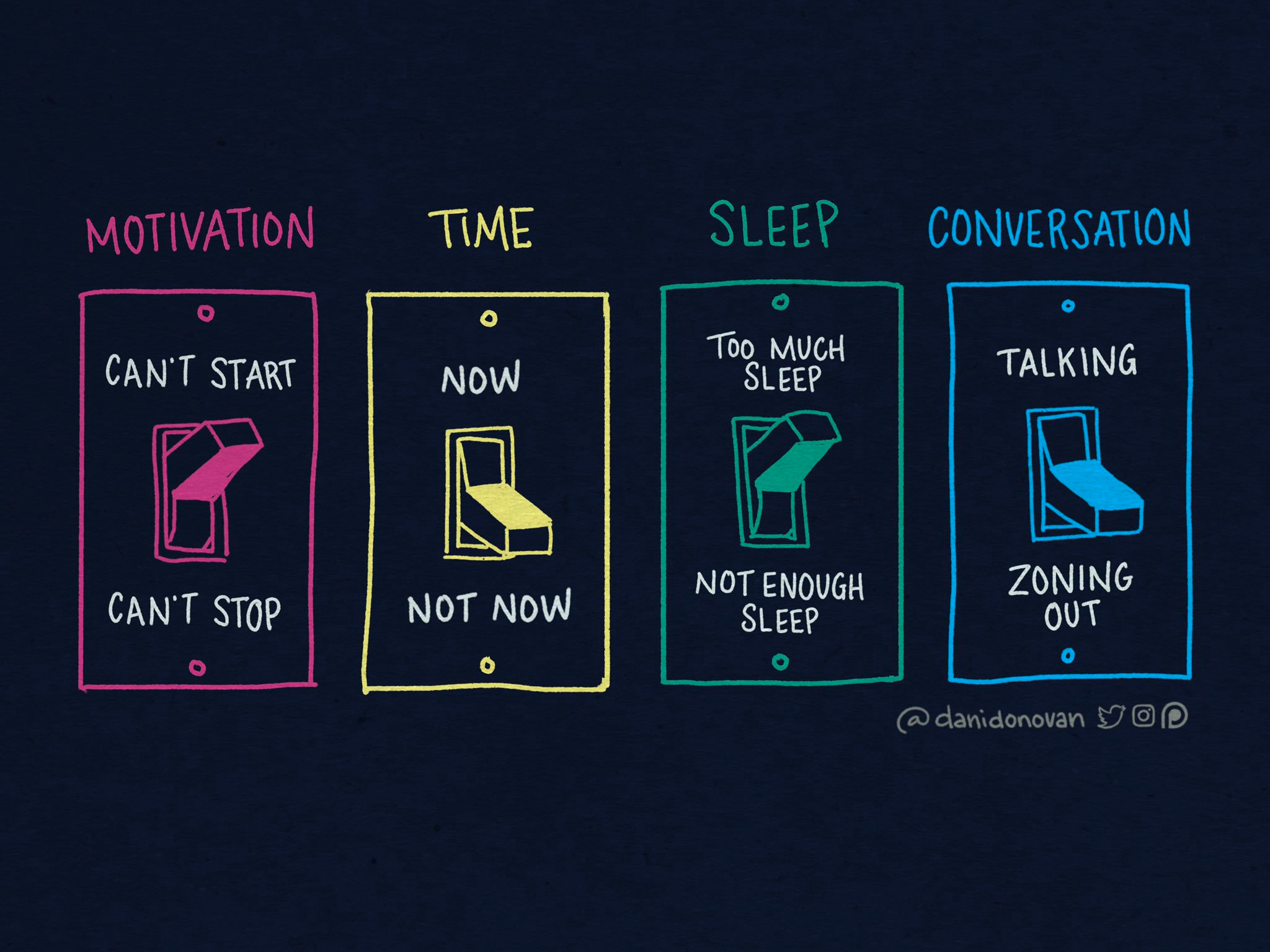Thanks for reading A Year of Mental Health! I’m really excited about the community we’re building here. If you're enjoying it, consider supporting the project by upgrading your subscription. This grants you access to bonus tools and resources, as well as the joy of making the newsletter free to others. 💚 You can also follow me on Instagram, LinkedIn, or check out my books wherever you like to shop. In the past couple of years I’ve heard from at least four friends about their ADHD diagnosis. The story is almost always the same, or at least very similar. “Dude!” they write to me. (Okay, that’s what the male friends say—but the rest of the story is the same.) “You’ll never guess what happened. I got diagnosed with ADHD.” “Oh wow!” I say. “Good for you, I’m glad you’re getting some help.” Then they mention something about Adderall or another ADHD medication, and I say, “You know I’ve been taking Adderall off-and-on for eight years, right? I’ve written a lot about it on the blog, and we’ve probably even talked about it sometime.” And then they say … “I had no idea! I wish I’d known sooner.” To be fair, I know people don’t read stuff they’re subscribed to, and even good friends lose track of conversations. But also, this is classic ADHD: you hyperfocus in some areas and ignore others. Sometimes, you miss key information that could help you. This is what happens to lots of people, not just my friends. Millions? I have no idea. One estimate has it at something like 4-5% of the adult population. It could even be higher, since many adults never seek help for their symptoms, or they could be misdiagnosed with other conditions. But again, the key point: many adults have untreated, undiagnosed ADHD—and it affects many parts of their lives, to varying degrees. My four friends are all better off from having joined the ADHD club. Maybe That’s You? Or Maybe You Know Someone?I tell this story because YOU probably know someone who could benefit from an ADHD diagnosis. Since I started sharing on this topic, people have been coming out of the woodwork from all over. Maybe it pertains to you personally—but even if not, like I said, I bet you know someone. I’ve also heard from people who say that learning more about ADHD has helped them understand their kids, their partner, or another loved one better. Speaking of kids/teens/young people, in general they have it hard these days in lots of ways. They’re growing up in a vastly different world than any previous generation. The list of challenges is long! But at least one thing is better for kids now: ADHD, as well as other neurodivergent conditions, is much less of a stigma, and much more likely to be diagnosed. If anything, kids these days (especially younger ones) might be overdiagnosed with ADHD these days. But if the pendulum has swung too far in recent years, it still points to a problem for everyone who once was a kid and didn’t get help they needed. That’s what this post is about. How ADHD Affects AdultsI’m not going to write a “You might have ADHD if…” post. Not all difficulty with focus or attention is ADHD. There are distractions and challenges everywhere these days, you know? If you really do think you might have ADHD, I recommend getting an evaluation done if at all possible. (More on this in the next section.) Either way, though, you can gain some understanding that may help you to live better. It’s not a checklist, but ADHD is something to consider if you’ve had some of the problems below. Executive Functioning IssuesAdults with ADHD often struggle with executive functions, including:
Time blindness is another huge problem for many of us, including me. It’s a condition where you chronically under- or over-estimate the amount of time required for something. It also refers to a challenge of keeping up with time in general. Social and Relationship ImpactsIn addition to executive function challenges, adults with ADHD can also experience difficulty in relationships, careers, and overall wellbeing. This includes:
The list could go on! And to be clear, there are some real strengths and good things about ADHD, including the ability to hyper focus on tasks you’re excited about, as well as increased creativity. In fact, if you asked me today “Would you give up ADHD?” as in, would I prefer to have lived my life as neurotypical—I’d say no thanks. I’m grateful for the different perspective and life experience I’ve developed, normal or otherwise. But this post is about the trauma of undiagnosed ADHD. If you live your life without understanding a key part of you, you’re not able to compensate for the weaknesses while maximizing your strengths. And that really is a trauma! One more important thing before we go on… Childhood ADHD tends to show up differently in girls than boys.This post is about adult ADHD, but let’s note one important detail that may affect at least half the people who read it. I’m not sure if it’s still the same, but historically at least, boys were diagnosed with ADHD much more than girls, in large part because of behavioral differences. Hyperactivity does not always mean physically acting out. It can also refer to hyperactivity of the mind. I’ve thought about this a good bit as I’ve considered my own experience. I too was someone who daydreamed a lot and had a rich inner world, sometimes to the exclusion of wanting to be involved socially. I had difficulties paying attention and staying on task. But I also had significant behavioral issues (oppositional defiant disorder, as the DSM categorizes it).¹ If I’d been a girl, or if I simply hadn’t exhibited those behaviors, I might never have been diagnosed with ADHD. Then I’d be reading someone else’s post about ADHD and thinking, hmmm, I wonder if that’s me! (Side note: I also recommend the work of Trina Haynes, who hosts the largest online community of women with ADHD.) Alright, on to some action points… Two Things You Can DoFirst, speak to a mental health professional about getting an evaluation. If you’re able to talk with a doctor and go through an evaluation, no doubt you’ll learn something—even if you don’t emerge with an ADHD diagnosis. And if you do get diagnosed, of course, presumably you’ll qualify for a prescription for medication, should you choose to go that route. There are also a few online companies that offer evaluation and diagnosis now. I’m not going to link to any because I don’t know much about them and want to be careful about any implied endorsement. Still, if I was trying to figure myself out and didn’t have access to a proper healthcare network, I’d probably seek out one of these options. One advantage, in addition to accessibility, is that these providers specialize in ADHD and are therefore less likely to be skeptical or unfamiliar with it. Since I’m not one of those professionals, I’ll focus more on the self-education part—which is also important. The weird thing is that even after I resumed caring for my ADHD as an adult, I wasn’t really given any information about it. I had a prescription, and that was helpful, but it was incomplete. Even though I do use medication, learning when and how to take it is at least as important as the meds themselves. See my very detailed post on how I use—and don’t use—Adderall to focus. One thing I didn’t say in that post: three years into taking Adderall, I’m not sure I could even define what an executive function was—I just knew I struggled! It’s only been in recent years that I’ve actually set out to learn more about neurodivergent conditions, and that’s been very helpful as well. In other words: there’s room for both medical treatment and self-education. And at least for some of us, both are essential.
Resources and ExpertsThere’s a big community of experts on most social platforms, especially YouTube, TikTok, and Instagram. I don’t think you should get all your information from social posts, of course—but it can be a good supplement to actual medical care. Also, the list below isn’t meant to be exhaustive (feel free to add to it in the comments!). It’s mostly people I know personally or am familiar with.
I’ve also found these books helpful: Brain Hacks, Executive Functioning Workbook for Adults, and Extra Focus (an especially well-titled book by Jesse J. Anderson) ConclusionI know that this post isn’t for everyone, but I also know that a lot of people need it—so if you’re in that club, I hope it’s helpful. 🙂 Feel free to share in the comments if you have an experience of your own, and anyone can share the post so that other people can benefit. Conversation Starters
1 Depending on who you ask, oppositional defiant disorder can be kind of an old-school diagnosis. One argument is that it risks pathologizing behaviors that might be considered developmentally appropriate, or even generally appropriate to abnormal situations. You're currently a free subscriber to 🌻 A Year of Mental Health. For the full experience, upgrade your subscription. |
Monday, February 26, 2024
The Trauma of Adult Undiagnosed ADHD
Subscribe to:
Post Comments (Atom)
$1,300 into $45,000 in just 4 Months!
I have a challenge for you... ...
-
insidecroydon posted: " Become a Patron! What's on inside Croydon: Click here for the latest events listing...





No comments:
Post a Comment